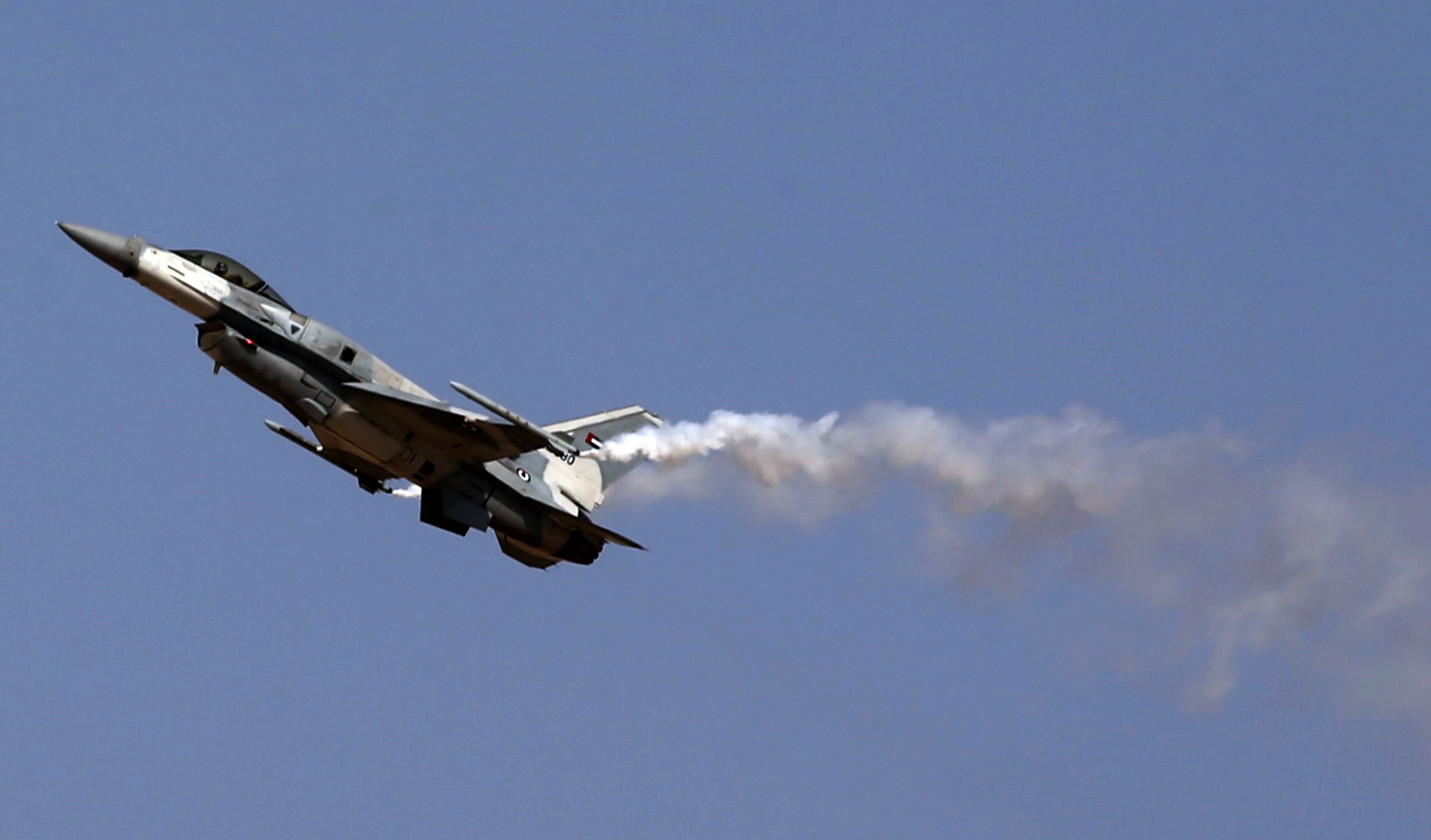JERUSALEM — Israel said Friday it will not oppose the U.S. sale of “certain weapon systems” to the United Arab Emirates following an agreement with Washington to upgrade its own capabilities to preserve its military edge in the Middle East.
The statement, released by Prime Minister Benjamin Netanyahu and Defense Minister Benny Gantz, did not specifically identify weapons systems, it but appeared to refer to the possible sale of F-35 stealth fighter jets, which the UAE hopes to obtain following its agreement to normalize ties with Israel.
Gantz’s office declined to elaborate on the statement, which was released late Friday in Israel, when the country is largely shut down for the Jewish Sabbath. There was no immediate comment from the Pentagon.
President Donald Trump, at White House announcement of normalized ties between Israel and Sudan, confirmed that the F-35 talks were underway.
“That process is moving along, it’s a good process,” Trump told reporters. “We’ve had an incredible relationship long term. We’ve never had a dispute with UAE. They’re always been on our side. And that process is moving along, hopefully, rapidly.”
The Israeli statement said Gantz reached “understandings” with the Pentagon during a visit to Washington this week that “will allow the procurement of advanced weapon systems that will significantly upgrade Israel’s military capabilities, maintain its security and its military advantage in the region as well as its qualitative military edge in the coming decades.”
It said Gantz was “notified by the US administration of its plans to notify Congress of its intention to provide certain weapon systems to the UAE.”
“The Prime Minister and the Defense Minister both agree that since the US is upgrading Israel’s military capability and is maintaining Israel’s qualitative military edge, Israel will not oppose the sale of these systems to the UAE,” it said.
Israeli opposition would have been fatal to the deal in the U.S. Congress, where Israel enjoys strong support. Lawmakers have raised questions not only about how Israel’s military edge would be protected, as U.S. policy has long dictated, but whether UAE’s defense relations with Russia and China to would jeopardize the advanced and stealthy warplane. Two key Democrats have introduced legislation this week placing restrictions on F-35 sales to Mideastern nations to address those concerns.
The UAE agreed to normalize relations with Israel earlier this year, bringing longstanding covert ties into the open in a deal hailed by the U.S. and Israel as an historic breakthrough in Middle East diplomacy. Bahrain also recently signed a similar normalization agreement with Israel, and Sudan agreed to normalize ties with the Jewish state earlier on Friday. Egypt and Jordan made peace with Israel decades ago.
Israelis welcomed the agreement with the UAE, which paved the way for the other normalization accords, but word that the U.S. intended to sell F-35s to the Emirates proved controversial.
Netanyahu repeatedly denied there was any link between arms deals and opening ties to the Emirates. That was met with skepticism in Israel, particularly amid accusations that he bypassed Israel’s defense establishment in agreeing to a past German sale of advanced submarines to Egypt.
RELATED

Critics have accused Netanyahu of lying over a key element that is believed to have clinched the deal for the UAE. Gantz, a political rival who formed a fractious coalition government with Netanyahu last spring, said he was kept in the dark about the UAE deal until the last minute.
Netanyahu said in a statement late Friday that the discussion of arms sales only began after the normalization accords were concluded and that he did not object because the U.S. agreed to upgrade Israel’s own capabilities.
Joe Gould in Washington, D.C., contributed to this report.








